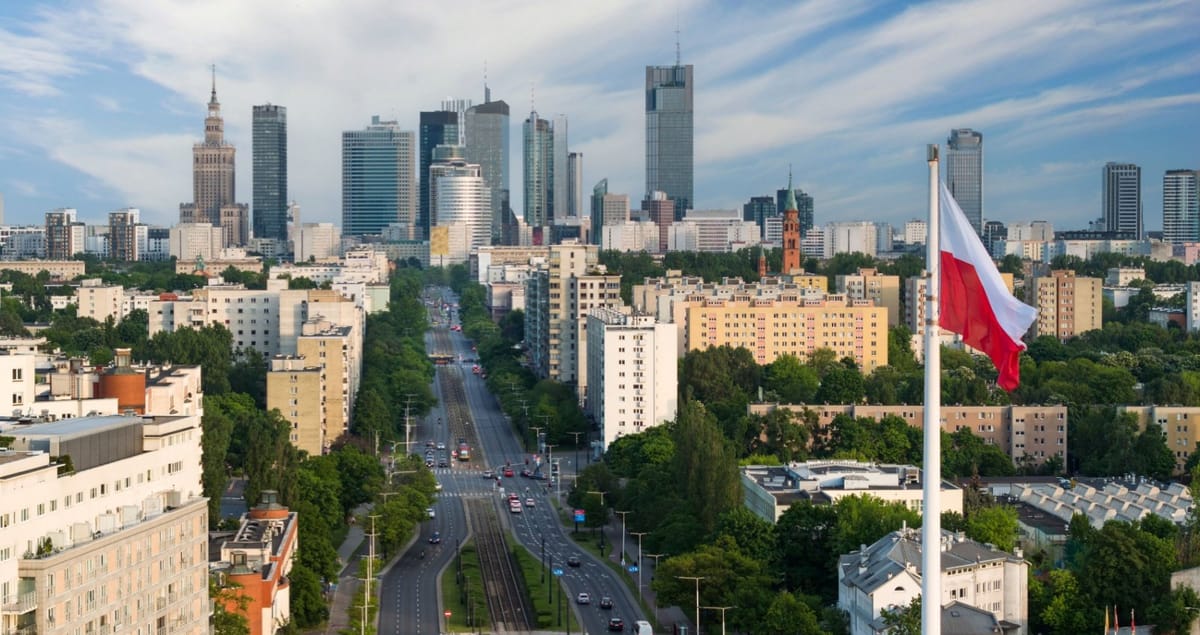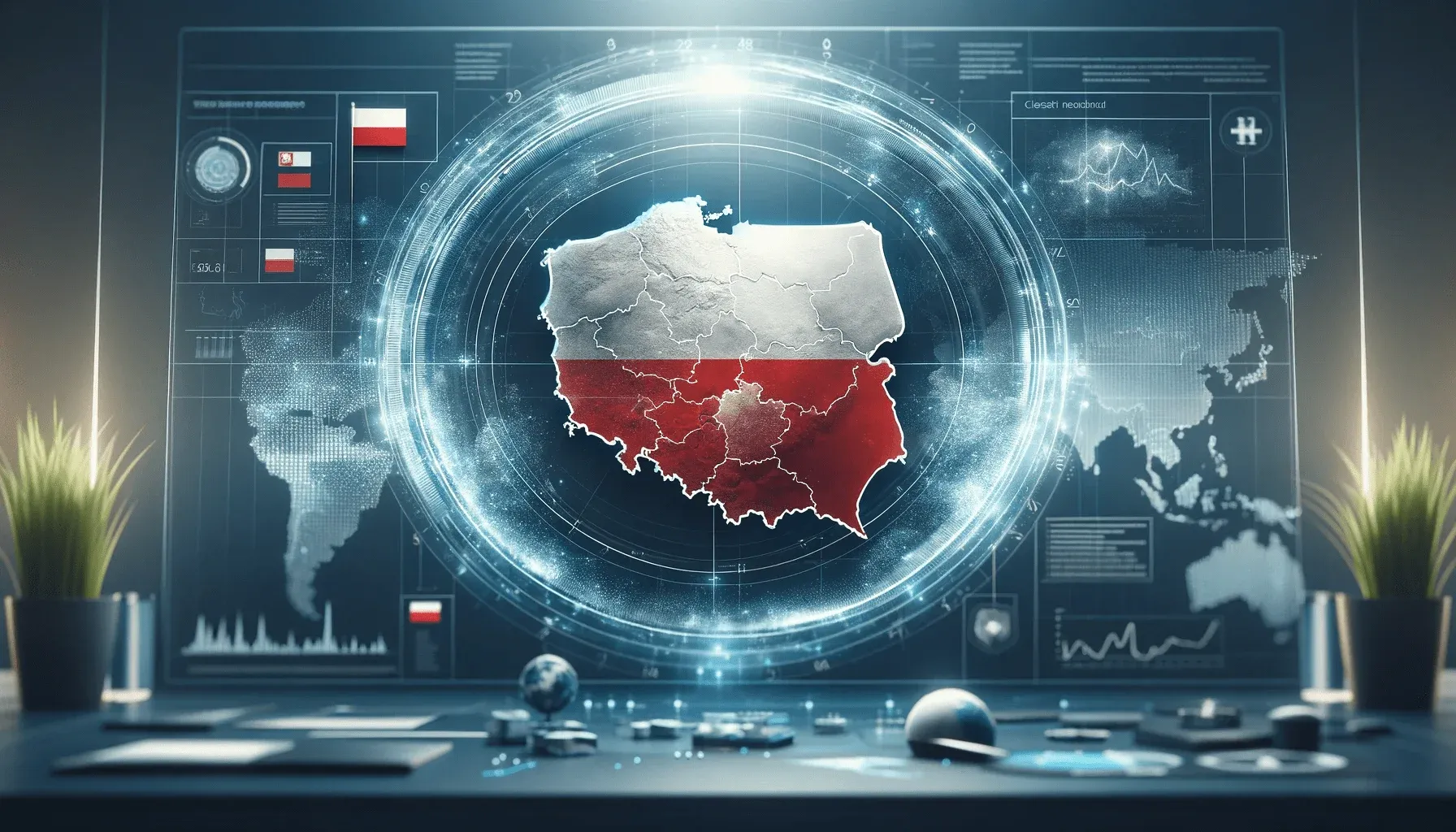Is Poland a Prime Destination for Remote Workers in 2025?
Overview of Remote Work Trends in Poland
Poland has seen a significant rise in remote work. More companies are embracing this flexible approach. This shift was accelerated by global events, but the trend continues to grow steadily.
Current Landscape of Remote Work Opportunities
Many Polish companies now offer remote positions. This includes both local businesses and international corporations. The IT sector, in particular, has a high number of remote job listings.
Impact of COVID-19 on Remote Work Culture
The COVID-19 pandemic was a major catalyst for remote work in Poland. Companies had to quickly adapt to keep their businesses running. This forced adoption has led to a more permanent acceptance of remote work arrangements.
Is Poland a Good Country for Remote Work in 2025?
Poland offers a lot for those looking to work from anywhere. It has a mix of modern amenities and a rich cultural heritage. But like any place, it has its challenges.
Advantages of Working Remotely from Poland
Quality of Life and Work-Life Balance
Poland scores well on the quality of life indices. The country offers a balanced lifestyle with access to nature, cultural events, and good healthcare. In fact, Poland is considered one of the countries with the best work-life balance in 2024.

Strong Digital Infrastructure and Connectivity
Poland boasts a robust digital infrastructure. High-speed internet is widely available, even in smaller towns. This makes it an ideal location for digital nomads and remote workers who need reliable connectivity.
Challenges for Remote Workers in Poland
Language Barriers
While English is widely spoken in business settings, daily life can still pose language challenges. Knowing some basic Polish can be very helpful. It can make your stay more enjoyable.
Cultural Adjustments
Adapting to a new culture is always a journey. Polish customs and social norms might differ from what you're used to. Patience and an open mind are key to a smooth transition.
Best Cities in Poland for Remote Workers in 2025
Poland offers several cities that are particularly attractive to remote workers. Each has its unique charm and advantages. These urban centers provide a blend of work opportunities and lifestyle benefits.
Kraków: A Hub for Digital Nomads
Kraków is a favorite among digital nomads. Its historical charm, combined with a modern vibe, makes it appealing. The city has a vibrant expat community, making it easy to network and make friends.
Cost of Living and Accommodation Options
Kraków offers a relatively low cost of living compared to Western European cities. You can find a variety of accommodation options, from modern apartments to charming old-town flats. Prices are generally affordable, allowing for a comfortable lifestyle on a budget. One can easily spend $10 USD per meal in Krakow, and groceries were very affordable.
Local Amenities and Community
The city boasts numerous cafes, coworking spaces, and cultural attractions. There are many parks and green spaces for relaxation. The local community is welcoming, and there are frequent events for digital nomads.
Warsaw: The Urban Center of Opportunities
Warsaw, the capital, is a bustling metropolis with a lot to offer. It's the economic and political heart of Poland. This makes it a great place for networking and finding job opportunities.
Networking and Job Opportunities
Warsaw is home to many multinational companies and startups. This creates a dynamic job market with plenty of remote work opportunities. Networking events and meetups are common, making it easy to connect with other professionals.
Lifestyle and Entertainment
The city offers a vibrant lifestyle with world-class restaurants, theaters, and museums. There's always something happening in Warsaw, from music festivals to art exhibitions. The nightlife is also lively, with many bars and clubs to explore.
Gdańsk: The Coastal Gem
Gdańsk offers a unique blend of history and modernity by the sea. Its coastal location provides a refreshing change of pace. It is perfect for those who love the ocean.
Unique Work Environment and Inspiration
Working by the Baltic Sea can be incredibly inspiring. The city's maritime history and picturesque old town add to its charm. There are plenty of quiet spots to work from, with the sound of waves in the background.
Cost of Living Insights
Gdańsk is more affordable than Warsaw but slightly pricier than Kraków. Housing options range from modern apartments to historic buildings. The cost of living is still reasonable, especially considering the quality of life.
Cost of Living in Poland for Digital Nomads in 2025
Living in Poland as a digital nomad can be quite affordable. It allows for a good quality of life without breaking the bank. This is especially true when compared to other European destinations.
Breakdown of Expenses: Housing, Food, and Transportation
Housing costs vary by city but are generally lower than in Western Europe. Food is also affordable, with plenty of local markets and budget-friendly restaurants. Public transportation is efficient and inexpensive, making it easy to get around.

Comparison with Other European Countries
Compared to countries like Spain or Portugal, Poland offers a lower cost of living. This makes it an attractive option for remote workers. You can enjoy a similar lifestyle for less money. For example, Spain is emerging as a premier destination for digital nomads in 2025. However, living expenses are generally higher there.
Tips for Budgeting as a Remote Worker
To make the most of your budget, consider living outside the city center. Cooking at home can also save money. Take advantage of free activities like exploring parks and attending local events.
Poland Visa Options for Remote Workers in 2025
Poland offers several visa options for remote workers. Understanding these options is crucial for a smooth transition. It ensures you can legally live and work in the country.
Overview of Visa Types Suitable for Remote Workers
There are different visas depending on your needs and nationality. Short-term visas are suitable for brief stays. Long-term visas are better for those planning to stay longer.
Digital Nomad Visa - Current Status and Requirements
While Poland doesn't have a specific "digital nomad visa," other visas can serve a similar purpose. For example, New Zealand offers a Working Holiday visa that lasts for 12 months, though UK and Canadian natives can stay for up to 23 months. The requirements typically include proof of remote employment and sufficient funds.
Short-term vs Long-term Visas
Short-term visas like the Schengen Visa allow stays of up to 90 days. Long-term visas, such as the national D-visa, permit longer stays and are renewable. Each has its own set of requirements and application processes.
Steps to Obtain a Visa for Remote Work in Poland
The process usually involves filling out an application form, providing supporting documents, and paying a fee. It's advisable to apply well in advance of your planned travel date. Consulting the Polish embassy or consulate in your country can provide specific guidance.
Remote Work Opportunities in Poland in 2025
Poland's job market is evolving, with a growing number of remote work opportunities. This is driven by both local companies and international firms setting up shop in the country. Several industries are leading the way in offering remote roles.
Top Industries Hiring Remote Workers
IT and Software Development
The IT sector is booming in Poland, with many companies hiring remote developers, programmers, and engineers. Cities like Krakow and Warsaw are major tech hubs. Companies like Motorola Solutions and Comarch are notable employers.

Creative Industries and Freelancing
Creative fields such as design, writing, and marketing also offer numerous remote opportunities. Freelancing is becoming increasingly popular. Platforms like Upwork and Fiverr have a strong presence in Poland.
Major Companies Offering Remote Roles
Notable Employers in Poland
Many international companies have offices in Poland and offer remote positions. These include tech giants and innovative startups. Dropbox hires for remote roles in Poland across teams like engineering and information technology.
Job Portals and Networking Resources
Websites like LinkedIn, Indeed, and local job portals list many remote positions. Networking events and online communities can also help you find opportunities. Engaging with local professional groups can provide valuable connections.
Conclusion: Is Poland the Perfect Spot for Remote Workers in 2025?
Summary of Key Points
Poland offers a compelling mix of affordable living, strong digital infrastructure, and a growing remote work market. Cities like Kraków, Warsaw, and Gdańsk provide diverse lifestyle options. While there are challenges like language barriers, the advantages are significant.
Future Outlook for Remote Work in Poland
The future looks bright for remote work in Poland. The trend is expected to continue growing, supported by favorable policies and a vibrant expat community. As more companies embrace remote work, Poland is well-positioned to become a leading destination for digital nomads in Europe.
Key Takeaways:
- Poland offers an affordable cost of living compared to other European countries.
- The country has a robust digital infrastructure, making it ideal for remote work.
- Major cities like Kraków, Warsaw, and Gdańsk are attractive to digital nomads.
- Visa options are available for those looking to work remotely from Poland.
- The IT and creative industries offer significant remote work opportunities.
